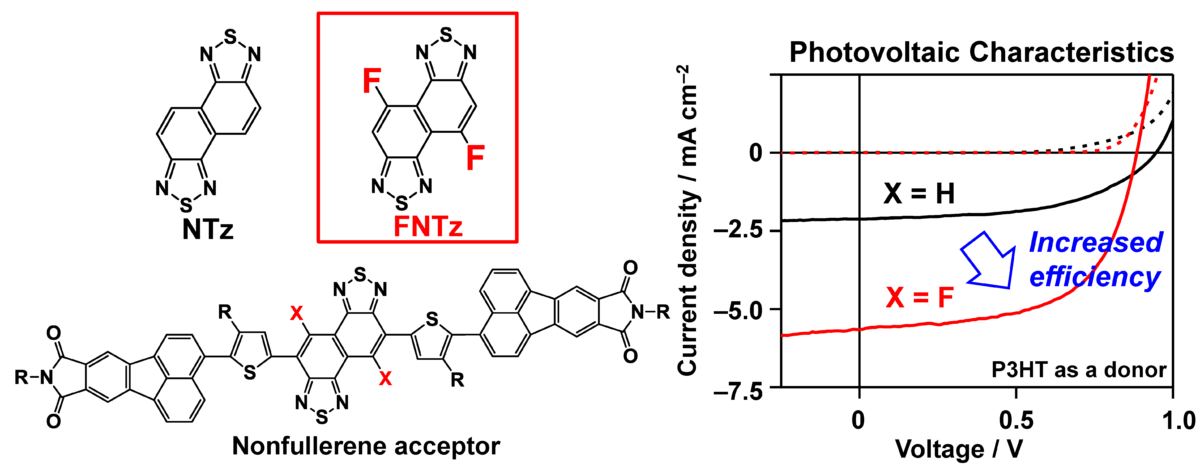A group of researchers from Japan’s Osaka University has developed new fluorinated electron-accepting units that are said to be able to show precise control of the energy levels within the resulting semiconductor, which means these units are able to tune the band gap.
This ability, they said, enables the selectivity over the injection and transport of holes and/or electrons within the semiconductor material, thus creating interesting for applications on solar cell devices.
The researchers claim the fluorinated electron-acceptor unit, embedded in an organic thin film solar cell they developed, was 3.12% more efficient than an analogue non-fluorinated cell.
Furthermore, they said that the morphology of the fluorinated film supported the efficient charge generation and transport necessary for successful application.
“It is our hope that the band gap control and high photovoltaic performance we have demonstrated will lead to our material being applied in devices such as organic light-emitted diodes, field-effect transistors, and thin film solar cells,” said the scientists.
The research has highlighted the strong link between high electronegativity, greater electron-accepting tendency, and enhanced semiconductor performance, while also stressing the importance of organic semiconductors for future PV applications, among others.
This content is protected by copyright and may not be reused. If you want to cooperate with us and would like to reuse some of our content, please contact: editors@pv-magazine.com.




By submitting this form you agree to pv magazine using your data for the purposes of publishing your comment.
Your personal data will only be disclosed or otherwise transmitted to third parties for the purposes of spam filtering or if this is necessary for technical maintenance of the website. Any other transfer to third parties will not take place unless this is justified on the basis of applicable data protection regulations or if pv magazine is legally obliged to do so.
You may revoke this consent at any time with effect for the future, in which case your personal data will be deleted immediately. Otherwise, your data will be deleted if pv magazine has processed your request or the purpose of data storage is fulfilled.
Further information on data privacy can be found in our Data Protection Policy.